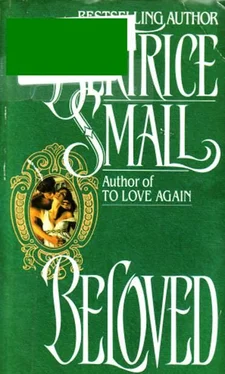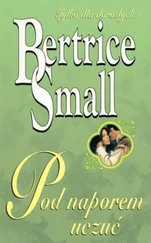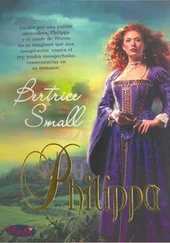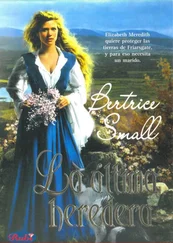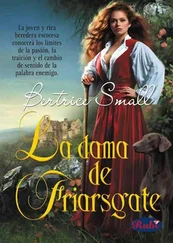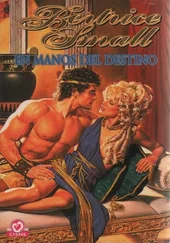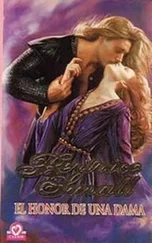"When and where you are Gaius; I then and there am Gaia."
Now the high priest from the Temple of Jupiter led the couple to the left of the household altar and, facing it, they were seated on stools covered with the skin of the sheep sacrificed earlier. Then a bloodless offering of a wheat cake was made to Jupiter by the high priest. A second cake was eaten by the bride and groom. Next the high priest recited prayers to Juno, goddess of marriage, and to the gods of the countryside and its fruits. The utensils necessary for the offering were carried in a covered basket by a boy called a c am illus , whose parents were both living. Zenobia had chosen for this important role her young nephew, Zabaai ben Akbar.
As the ceremony concluded the guests cried " Feliciter! ” meaning good luck and happiness. Odenathus turned Zenobia to face him. Seeing him for the first time since she had left the palace almost two weeks ago, she felt shy and blushed. There was a hum of approval by those close enough to see.
Gently he kissed her on the forehead. "I have missed you, my flower," he said so only she might hear.
"I have missed you, Hawk."
It was the only private moment they would get for many hours to come. A lavish wedding feast had been planned, and it would last until evening. Knowing what was expected of her, Zenobia took her new husband's hand, and together they led the guests into Zabaai's magnificent outdoor dining room in the back garden of the villa. Here, dining couches and tables had been set up around a tiled court with a center fountain that shot a spray of water from the mouth of a marvelous golden sea dragon who writhed in the center of the fountain. The bride and groom shared a couch at the center table while the other guests were seated according to the order of their importance.
The meal was divided into three parts. The appetizers consisted of asparagus in oil and vinegar, tuna and sliced egg on beds of lettuce, oysters that had been brought overland packed in snow, and thrushes, roasted a golden brown and set upon beds of cress, all on silver platters decorated with apricots and ripe olives. The second course offered loin of goat, legs of baby lamb, roasted chickens, ducks both domestic and wild, hare, great bowls of vegetables such as green beans, young cabbage sprouts, cauliflower imported from Europe, lettuce and onions, radishes and cucumbers, olives both green and ripe. There were loaves of bread, round and hot from the ovens.
When the main part of the meal had been cleared away crystal bowls of almonds and pistachios were set upon all the tables along with platters of green and golden pears, red and purple plums, peaches, apricots, cherries, pomegranates, grapes black, purple, and green. There were sticky honey cakes shaped like butterflies and wrapped about chopped nuts and poppy seeds. A wedding cake filled with raisins and currants was served, and pieces of this cake were distributed to all the guests to take home for luck.
Throughout the meal a mixture of water and wine had been served, but as the desserts were being offered rich red wine was poured and repoured into eager goblets. As the diners became more boisterous the entertainers appeared. There were wrestlers, jugglers, dancing dogs, and dancing girls who were very well received indeed. The late morning had melted into afternoon, and now suddenly evening had come. The most important part of the wedding was about to take place. It was essential to the validity of a marriage that the bride be escorted publicly to her husband's house with much ceremony and pomp.
All afternoon the crowds had been gathering outside of Zabaai ben Selim's house, and along the route that would be taken by the couple on their way back to the prince's palace. Now with the arrival of the torchbearers and the flute players the procession began to form. Bab had already gone on ahead to the palace, and Zenobia had earlier bid the rest of her father's household a proper farewell. The marriage hymn was sung by all the guests, and Odenathus pretended to take Zenobia by force from Tamar's protective embrace. The bride then took her place of honor in the procession, attended by her three youngest brothers, two of whom walked beside her, holding her hands. The eldest of the three lit the way ahead with the wedding torch of hawthorn.
Before the procession moved off into the street Zabaai ben Selim spoke low to his daughter: "Remember we are your family. If you need us, Zenobia, you have but to call."
She smiled a radiant smile at him. "I will remember, and pray the gods I never have need of your offer, my father."
"It is best to be prepared," was his reply.
"Come, my flower." Odenathus was by her side, smiling. She smiled back happily, and the procession was off. Across the street in the crowd of well-wishers Marcus Alexander watched as Zenobia moved away. She was as beautiful as he had remembered, and for the first time in his life he felt envy for another man, envy for the Prince of Palmyra who would soon untie the knot of Hercules on Zenobia's wedding dress and then spend the rest of the night making love to that exquisite creature. Would he be gentle, or would he fall on the girl like a beast and frighten her? He sighed. He would be gentle. He would caress that softer-than-silk skin- somehow Marcus Alexander knew Zenobia's skin would be soft- until a fire raged within that beautiful body. A fire to be possessed, and to possess.
Seeing the look of longing on Marcus Alexander's face, Severus realized with shock that his master had fallen in love with the new Princess of Palmyra.
There was no time to ponder it, for the crowd was joining in the procession, already beginning to sing songs full of coarse jests and double entendres as they accompanied the bride through the city to her new home. It was the same everywhere, Severus thought, not at all shocked. Princess, patrician, or commoner were all escorted with the same vulgar songs. At the first crossroads they came to, Zenobia dropped a coin in offering to the gods of that place. A second coin she presented to Odenathus as symbol of the dowry she brought him, and a third she kept to put upon the altar of her new home's household gods. As they moved along, the crowds scrambled to obtain some of the sweetmeats, sesame cakes, and nuts that the prince scattered along his route, a traditional prayer for his wife's fertility.
It seemed as if the entire city had joined in the procession by the time they reached the palace. At the main gate Zenobia stopped and wound the doorposts with wool, symbol of her duties as mistress of the house; and anointed the door with oil and fat, emblems of plenty. Odenathus then picked her up and carefully carried her across the threshold, gently setting her back on her feet within the great atrium of the palace. A final time Zenobia said, "When and where you are Gaius; I then and there am Gaia." The doors were then closed.
Before the invited guests, Odenathus offered Zenobia fire and water in token of their new life together. Taking the marriage torch from him, Zenobia put it to the wood laid upon the atrium hearth, and then tossed the now dead torch among her guests, who scrambled eagerly for the lucky item. She then recited a prayer to the gods thanking them for her good fortune, and begging them that she be fruitful. Tamar, still in her role as pronuba, led Zenobia to the marriage couch, an ornamental piece of furniture that was always placed in the atrium on the night of the marriage and remained there afterward. This was the signal for all guests to leave, and shortly the bridal couple were alone.
For a few moments they stood in silence. Then the prince said, "Are you tired, my flower?"
"Yes."
"Then we shall go to bed."
" Here?" He heard the panic in her voice as her gaze swept the large, open atrium, finally lighting on the large and gilded marriage couch.
Читать дальше
